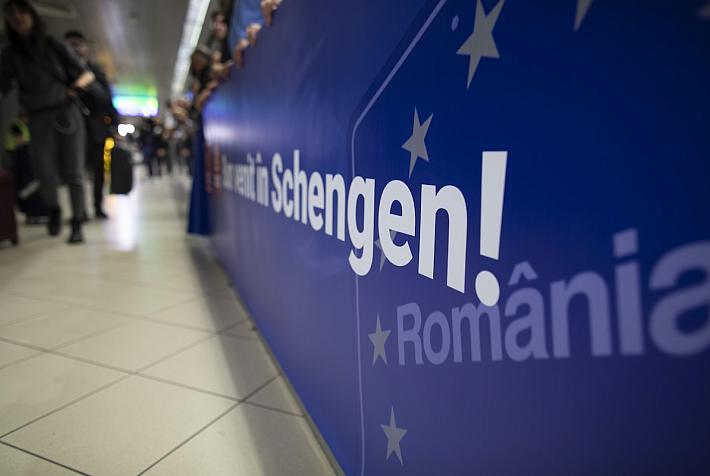Native content supported by Hammond Partnership.
Enforcement of United Kingdom judgements in Romania after Brexit

A question that is now only being discussed and clarified in Romania is the question of the enforcement of United Kingdom judgements in Romania.
Currently, the enforcement of judgments within the European Union is regulated by the Brussels I Regulation (1215/2012). The Regulation provides that subject to some amendments a judgment in a Member State will automatically be recognised in another European Union Member States without any ‘special procedure’ being required. The Withdrawal Agreement signed by the United Kingdom and the European Union contains a provision that a judgement or decision obtained in a case that was commenced before the 31st December 2020 will be enforceable under the Brussel 1 Regulation. However, the position for cases issued after that date will be different and their enforcement will revert to the pre European Union position.
For non-European Union countries the 2007 Lugano Convention represents a solution to the enforcement issues created by Brexit. The Lugano Convention is a treaty between the Member States and some members of the European Free Trade Association. The Convention is similar to the position between Member States prior to the implementation of Brussels 1 Regulation referred to above whereby an application must be made to have the foreign judgment declared enforceable before it can be enforced. This can sometimes cause considerable delay and problems in Romania. The United Kingdom has applied to join the Lugano Convention as a non-European Union country, although to date the application has not yet been approved.
The United Kingdom was a party to the 2005 Hague Convention on Choice of Court Agreements with effect from 1 January 2021. The Hague Convention is, limited in scope because it applies only to disputes between parties to contracts in civil or commercial matters that contain exclusive choice of court clauses. Therefore, enforcement of judgments under the Hague Convention will only be allowed in cases where the parties agreed on a choice of court before any dispute arose. It should also be noted that the Hague Convention does not provide for the enforcement of protective measures such as interim injunctions or freezing orders.
Furthermore, the Hague Convention provides that it shall only apply to agreements concluded after its entry into force in the relevant State and specifically does not apply to proceedings instituted prior to the Hague Convention’s entry into force in that State. Most practitioners take the view that it came into force on 1st October 2015 when it became binding on European Member States.
Where enforcement in Romania of a United Kingdom judgment is required under the Hague Convention, an application to the Romanian court must be made. That application is broadly similar to the procedure under the Lugano Convention whereby an application may be made without notice to the other party and there are limited grounds upon which the recognition of the United Kingdom judgment can be refused.
An advantage of the Hague Convention is that – in contrast with enforcement at common law – a broader range of judgments can be enforced under it. Only foreign judgments for a definite sum of money may be enforced under the common law rules. Applications for enforcement under the Hague Convention are typically also more straightforward than under the common law rules.
In any matters that commenced after 1 January 2021 and where none of the above agreements, regulations or conventions apply, the Romanian law will apply in respect of recognition of the decision.
Under Romanian law there are two options in terms of having the foreign judgment recognised. The judgment holder can issue fresh proceedings seeking judgment / orders in Romania based on the same cause of action which has already been determined in the foreign jurisdiction, but this will be time consuming and there is always the possibility of failure, or they can make an application to the Romanian courts to have the foreign judgment recognised in Romania. There are several conditions that will need to be satisfied for this option to be successful including notice to the judgement debtor and the particular circumstances will need to be considered on a case-by-case basis. Inevitably, there will be a delay in time, cost will be incurred, and complexity as compared to a matter which enjoys the benefit of reciprocity under European Union law.
Foreign arbitral awards are not governed by the agreements, regulations and conventions mentioned above. In 2010, Romania passed Law no. 134 regarding the Civil Procedure Code which includes provisions regarding both domestic arbitration as well as international arbitrations. The terms are similar to the provisions of the UNCITRAL Model Law on International Commercial Arbitration (Model Law). However, the parties may still choose to refer in their arbitration agreement to the provisions of the UNCITRAL Model Law. In 1961, through Decree No. 186, the Convention on the Recognition and Enforcement of Foreign Arbitral Awards (the New York Convention) was given force of law in Romania. Therefore, pursuant to Article III of the New York Convention, foreign arbitral awards of contracting states to the New York Convention are recognized as binding and enforceable in accordance with the rules of procedure in Romania under the conditions laid down in the New York Convention. The procedure for such recognition and enforcement is relatively straightforward.
Until everyone agrees that the United Kingdom may accede to the Lugano Convention as a third country, or a separate agreement or convention is entered into between the European Union and the United Kingdom, the enforcement of European Union - United Kingdom judgments in matters commencing after 31 December 2020 will inevitably be more complicated. The enforcement of United Kingdom awards will therefore continue to create issues for months to come.
This is native content supported by Hammond Partnership.












